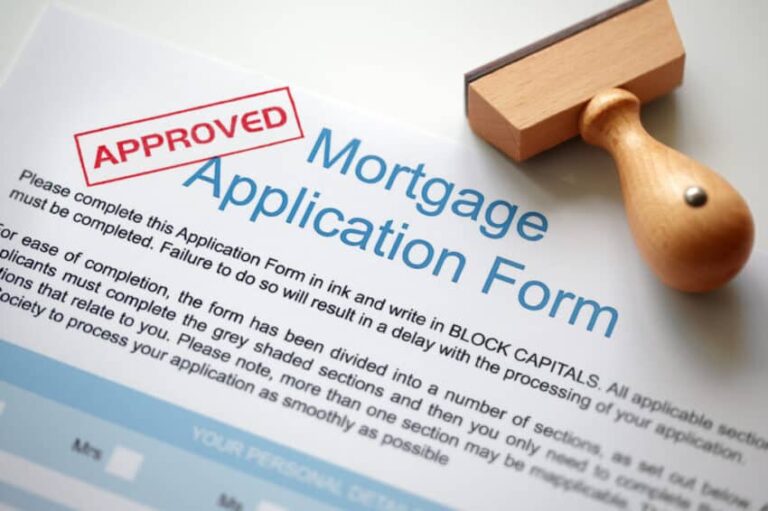[ad_1]
When you are interested in buying property but your credit is not the best, getting a mortgage deal can be very challenging.
Payday loans, credit cards and difficult situations in life can lead to a low or poor credit score. We have teamed up with mortgage experts at The Mortgage Genie to bring you the best tips and a solid approach to improving your chances of buying a home even if you may have had credit issues in the past.
1. Are There Adverse Credit Mortgages Available?
The short answer – Yes. You may think that because you don’t have a flawless credit score then the idea of getting a mortgage is entirely out of the picture. This, however, is a general misconception.
Mortgage lenders all vary from one another in that they each have different sets of criteria by which they measure the suitability of a client. For instance, one lender may flat-out reject you whereas another may have more flexible standards which match your specific financial situation. It is simply a matter of finding the lender that is right for you.
Although adverse credit mortgages are available, they do differ slightly from a regular mortgage. Adverse credit mortgages typically have higher interest rates, fees, and will require a larger deposit, so it is important to think realistically and practically about your price range when searching. The factors surrounding this, of course, will depend entirely on your personal situation, and so will vary from individual to individual.
2. Take Some Time to Improve Your Credit
A range of aspects go into defining what is considered a ‘bad’ credit score that leads lenders to consider someone a ‘high-risk’. This includes things such as over-frequent application for credit, missing credit card payments, mortgage arrears, past repossessions, bankruptcy, and whether you’ve had a county court judgement (CCJ).
These factors each have a varying degree of severity associated with them, and importantly, how long ago they occurred is also tied to their level of influence. For instance, there is a marked difference between a bankruptcy taking place one year ago to six years ago. This means that it is worth waiting for time to heal any of these financial and or legal wounds. It also means that there is hope in the future for your credit quality.
In the meantime, there are certain actions that you can take which help towards improving your chances of securing a mortgage. This includes, regularly meeting credit card payments and utility bills, pragmatic budgeting, justifying past difficulties, and managing any other credit commitments such as mobile phone contracts through to car finance. Fulfilling these conditions helps to present you more favourably towards lenders.
3. Make Sure You’re Settled Before Trying
It is vitally important that you follow the advice given in the previous point to become financially settled before applying for a mortgage. The reason for this is that if you take the time to rebuild your credit rating then you will have access to better mortgage options, which your future self will thank you for.
As the influence of your past financial mishaps will decrease over time, so too will the interest rates you’ll be expected to pay, thus providing you with significant savings. Not only this, but each hard credit-check a lender carries out leaves a footprint on your credit profile, having many of these will further harm your chances of success. It is therefore important to wait until the time is right before you apply.
4. Save for a bigger deposit
Continuing from the latter point, time will also allow you to save for a bigger deposit. Your deposit is one of the primary factors which lenders consider when assessing your case, and the healthier the deposit, the better your outcome will be.
Having a larger deposit will drastically widen your options on the market because the scope for low-deposit mortgages is a lot narrower, and so more difficult to get into. Additionally, if your deposit is higher, then your interest rates will be lower, likewise improving your future financial security as the previous tips do. And lastly, a higher deposit will decrease the chances of a lender viewing you as a ‘high-risk’ client, further increasing your eligibility.
5.Use a Mortgage Broker
For that extra edge it is a great idea to approach a mortgage broker. Mortgage brokers specialise in finding the lenders and deals which are specifically tailored for your personal financial situation. This is especially helpful if you’re in search of an adverse credit mortgage as your options will be tighter, and therefore more difficult to navigate by yourself.
Make sure to find a mortgage broker with a wealth of experience, a positive history, reasonable fees, and you’ll end up feeling a lot more confident about your situation, as well as more optimistic about the future.
Conclusion
If you clicked on this page with feelings of uncertainty and doubt, then we hope that the tips and advice in this post clarified any of the misconceptions you had about adverse credit. Adverse credit mortgages are out there, and if you follow our steps then you’ll certainly be on your way towards a bright and hopeful housing future.
[ad_2]
Source link























0 Comments